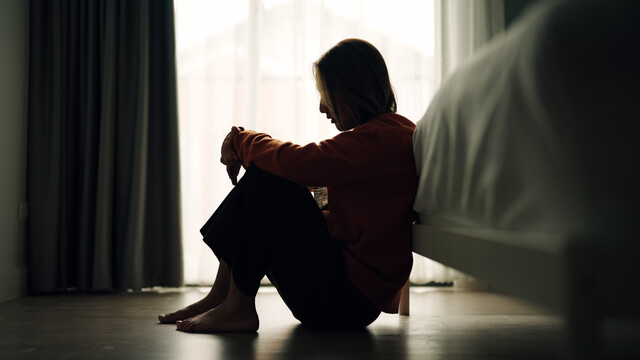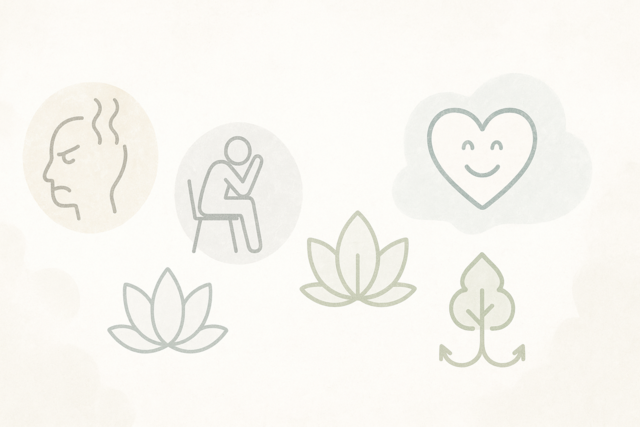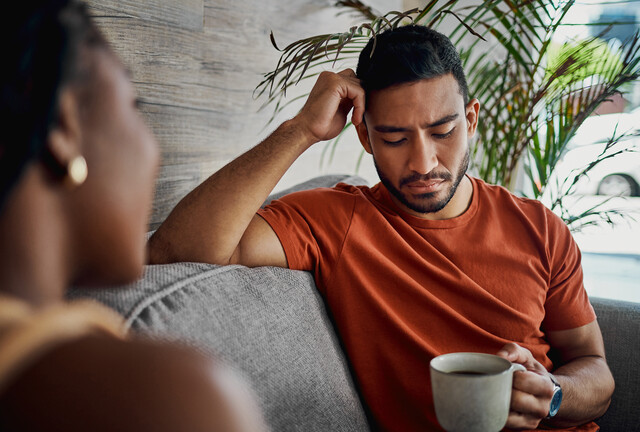The second half of treatment after testing and looking at your options requires you to actually take action. You can look at what is available, but it won't do you or your social anxiety any good if you do not act upon it. Your social anxiety is not going to go away or change if you ignore it and hope for the best. Taking bold action instead will often be the best thing that you can do.
This article will take an expanded look at the treatment options that are available for social anxiety, specifically coping strategies, and methods. It will also look at what you can do for yourself to increase your chances of success in overcoming your social anxiety and how to prepare for socializations. The article will also provide a guide for setting up a support system, which is an important component of overcoming social anxiety.
What Are Your Options?
Before you take the next step, revisit the information that you learned from testing and discussions with your treatment provider. What options do you have in moving forward? What will happen if you choose one option versus another? Consider the pros and cons of your next actions and what they can mean for you further on in your journey with social anxiety. Be realistic in what is available to you--in terms of things such as location, finances, and what is offered--and what you are able to do. Your limits will change as you continue, but it is best to keep what limits you have at the beginning in mind rather than the ones you expect to have by the time you are done.
You should also take into account what it is that you want to accomplish during treatment. Overcoming social anxiety is the main overall goal, but how do you want to do it and what do you want to do along the way? Think about it in terms of steps. Each goal--which should be further than the one before it--should be set at a certain point in time. It could be as simple as what amount of progress do you want to accomplish in a year's time.
Coping Strategies
Coping strategies are tools and techniques that you can use to ease and reduce your social anxiety. They are designed to calm you down and allow you to relax. However, the applications for coping strategies are endless and many of the ones that are used for anxiety disorders are applicable in helping with other mental health conditions and times of distress.
The following coping and relaxation strategies are simple tools that you may want to consider using for your social anxiety. This is not a finite list, and many of the ones present in it can be modified to a person's specifications or needs. You may also find, though your own searches and resources, that there are variations of those listed here. It is also possible that you may create your own coping strategies that are specific for you and your own circumstances.
-
Inhale, Hold, Exhale--Coping strategies involving breathing are rather common and popular because of how easy they can be adapted. Breathing techniques can calm a person down quickly in any situation. One such strategy requires you to breath in for four seconds, hold it for seven seconds, and then exhale for eight seconds. Counting the seconds for each step also allows you to focus on something outside of your social anxiety, which calms you mind down as well.
-
Count Slowly--Counting in general often allows your mind to focus on something else during a stressful situation. Either aloud or in your head, slowly count to ten. Focus on each number, picturing it as a number, word, or quantity as you count. If necessary count to twenty. This can be used as soon as you start to feel stressed in a social setting and it can serve as a preemptive strike against your social anxiety. Counting backwards can also help, as it redirects your brain's attention towards remembering the order of numbers rather than what is triggering your social anxiety.
-
Find a Distraction--Some people with social anxiety choose to bring an item with them to serve as a distraction when they feel overwhelmed. It can be something small that you can keep in your pocket or have on your phone. On occasions where social interaction isn't a key part of a situation, like doing your grocery shopping, some people choose to listen to music as a distraction (Just remember to pause it when you reach the check out!). Others will pick an object near them during a social interaction and lock in their focus on it in an effort to block out their anxiety.
-
Use a Mantra--Mantras are short phrases that you focus on as you repeat them. It can be anything really, so long as it is something you remember. They are commonly associated with meditation--which can also be used to combat social anxiety--but they are not limited to only meditative practices. Pick a phrase--preferably five words or less--that means something to you. It can be inspirational, or a reminder of something you love.
-
Close Your Eyes--Social anxiety can cause a person's senses to go into overdrive, as the fight-or-flight instinct it triggers will have their brain search for any and all possible threats. Cutting off the brain's access to one of those tends to ease that panicked search so you can focus on calming it down. Since it's a bit difficult to stop hearing, smelling, and touching things, closing your eyes is often the best option. Most triggers involve your sight, so this can also remove a particular trigger from your focus and diminish its effect on you.
Preparing Yourself
Once you know that social anxiety is a factor in your life and how it affects you, you can make sure that you are prepared for socializations. Being blindsided by something is problematic and can make it harder to recover from it. For social anxiety, being prepared can help you be ready to face your triggers and use your resources when you need to. A little bit of preparation can go a long way and it doesn't take much effort to do it.
-
Recognizing Your Triggers--As stated before, knowing what sets off your social anxiety can play a key role in stopping it in its tracks. Your triggers are specific to you, thus it is your responsibility to know what can set of your social anxiety. Identifying the triggers that affect you that will be potentially present in a social situation can give you enough information to prepare. Just as certain coping strategies work best in certain situations, it is possible that they can also work with certain triggers.
Recognizing your triggers when they are activated can allow you to quickly and efficiently respond. The effect that some triggers generate can take time to fully kick in, giving you time to do what you must to reverse it. Even triggers that generate a quick response from your social anxiety may benefit from preparation.
-
Planning Ahead--One way that you can stay prepared is to actively plan ahead. When you know that you are going to be in a social situation, getting yourself prepped for it can give you an added boost in making sure that things go well. Look at the aspects of a situation and how they can affect your social anxiety and your response to it. Think about things such as location, time, who's going to be there, and what the occasion is. If your social anxiety kicks in, what are you going to be able to do in that situation in regards to the particulars of it? Is there somewhere you can excuse yourself if you need it? Are you going to be overwhelmed as soon as you walk into the room? Are you attending it by yourself or is there going to be someone from your support system there with you? Preparing for any of these aspects can make a difference in how the situation pans out for you.
-
Stay Informed--Things have a habit of doing the opposite of what we want them to do. When it comes to social anxiety, it is quite possible that your preemptive planning and preparations can be made moot. Last minute changes to an established situation can occur and cause you to not be as prepared as possible. Maybe there's new elements involved, including triggers that you were not expecting to face. Staying informed about what is going on with socializations that you are a part of can help keep you from being caught off guard. While you will never truly be 100% prepared, you do want to make sure that you are not walking into a situation clueless.
Staying on top of new things in terms of coping strategies and treatment options can also be beneficial for planning. Hearing about a new coping strategy, for example, can allow you to replace one that has worked for a long time yet is losing its effect.
Creating Your Support System
Having a support system can be a valuable tool that can help you overcome your social anxiety. Your support system is going to be made up of people who you feel close to and who love you. They will have your best interests in mind and can help you take back your social anxiety's power over you.
As you build your support system, consider some of the following aspects:
-
Who do you trust?--Think about the people in your life and who you find to be trustworthy. It could be friends, family, colleagues from work, classmates from school, or authority figures. As you seek treatment for your social anxiety, you find that you have developed a sense of trust for the doctors and therapists administering your care. What about them makes them trustworthy? Would you go to these people if your social anxiety became too difficult to manage? Would you then trust them to be available and willing to help you? If you want to count someone as part of your support system, then you need to look at why you want them specifically. You will also want to look at if they'd be able to do what you are asking of them.
-
How do you ask them for support?--Not everyone is comfortable with having the responsibility of supporting someone through hardship without notice. Asking them if they'd be willing to support you if you needed help is the polite thing to do and recommended if you want to make sure that they are going to be able to help you when you need it. You can approach the topic by simply asking if they would be able to help you out. Ask if it would be okay to call or come by them if you need help with your social anxiety. See what they are comfortable with before you make them fully commit to being a part of your support system.
-
Teaching them about your social anxiety--Sometimes, someone will willingly support someone yet have no knowledge of what it is they need help with. They don't know anything about social anxiety or what it does to you and, as a result, are completely unprepared for when the time comes that you need their help. Teaching them about social anxiety and how it affects you can help them understand why you need help. It can prevent them from saying or doing things that can be hurtful or even harmful to you when you need their help. 5 You can share your experiences with them to teach them or direct them to resources about social anxiety.
-
Expanding your support system--The time may come when you have someone new in your life that you trust enough to lean on for support. Increasing your support system is a good idea; it can help bring new resources and perspectives into your life and ease any pressure that may be placed on your supporters. Approaching the topic with someone new doesn't require very many changes from what was done to start your support system in the first place.































